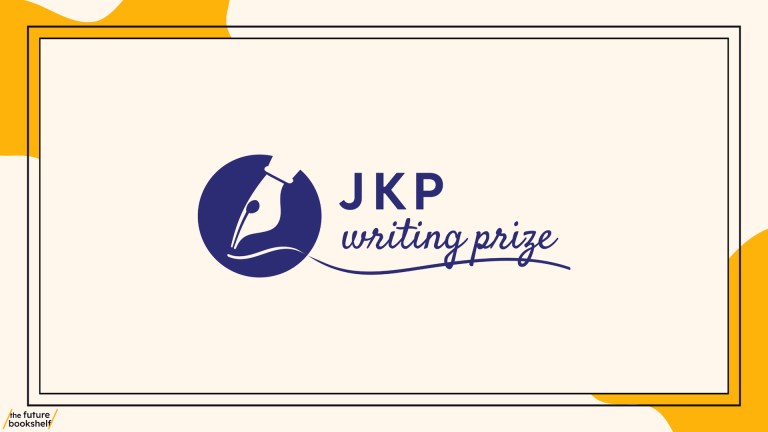‘I have one daily writing tool: free writing’
I have one writing tool that I use almost daily. This tool moves me from the nebulous mess of an idea to some sort of draft. This tool has taught me to write fast and it is the best defence against my inner critic. This tool surprises me with what I come up with and it moves me forward, as I draft, more effectively than any other tool. This tool is the free write.
A free write is an unfiltered and unstructured spew of words on paper. It is loose, sloppy and free. It has as little self-correction as possible. It works best for people like me who are already on the speedy side when it comes to writing. In the free write, convention is thrown out of the window and spelling and grammar are ignored (unless you choose not to ignore them). Being correct takes a back seat to being free.
From free writes, new insights can be discovered. Great metaphors can be identified. In a free write, a memory can be triggered and new depth can be expressed. In a free write, the full richness of conscious and subconscious life can pour out on to the page.
The free write is much like potter’s clay. It is just a hunk of material, not the art itself. From this unrefined mass, true craftsmanship begins. A skilled writer/craftsman can take the raw material of this free write and shape it into something amazing. He can analyse it from all sides, move sentences around and chip away word after word, substituting vibrant verbs and descriptive nouns.
By practising free writing, a writer will
- have far less writer’s block
- be stimulated by other ideas
- use his designated writing time wisely.
- have silenced inner critics faster
- have strengthened individual voice
- have raised the standard of excellence
- have trusted in the creative process
- become more confident
- be released from the expectations of others
- become a better writer.
If you have never attempted a free write before, this is how you do it.
- Open up a new document or a grab a piece of paper.
- Set a timer for ten minutes.
- Write everything you can about any subject you want (refer to the list in the workshop for Chapter 4 if you need a prompt) as fast as you can. Include every nuance, every tangent, every cliché, every thought, everything. Think stream of consciousness or a Jackson Pollock painting. Just write it down!
- Don’t stop for anything – especially that little voice inside you that says you must be doing it wrong.
- Read what you have written but have low, low expectations. Do not be surprised if, after ten minutes of free writing, you have only one or two sentences you can work with. You are not looking for good sentences but for good concepts, good metaphors and good description. You are looking for good art. You are looking for the unusual. You are looking for the phrase that is more you than anything else. You are looking for your distinctive voice.
As you progress in the development of the elements of your novel, you will find that free writing will enhance the sculpting process. Free write your themes. Free write your characters. Free write your settings. Free write at every single step in the course of writing. No one is looking, so let go of every hindrance and keep going. The most authentic, passionate, creative writers are those who have tapped into this part of who they are and have written freely. You need to learn to do this.
I believe that it is in the practice of the free write that brilliant ideas are conceived. I believe that it is only in free writing that the other muscles, like analysis, organization and metaphor really come to play. I believe that good writers are good free writers.
I have one writing tool that I use almost daily. This tool moves me from the nebulous mess of an idea to some sort of draft. This tool has taught me to write fast and it is the best defence against my inner critic. This tool surprises me with what I come up with and it moves me forward, as I draft, more effectively than any other tool. This tool is the free write.
A free write is an unfiltered and unstructured spew of words on paper. It is loose, sloppy and free. It has as little self-correction as possible. It works best for people like me who are already on the speedy side when it comes to writing. In the free write, convention is thrown out of the window and spelling and grammar are ignored (unless you choose not to ignore them). Being correct takes a back seat to being free.
From free writes, new insights can be discovered. Great metaphors can be identified. In a free write, a memory can be triggered and new depth can be expressed. In a free write, the full richness of conscious and subconscious life can pour out on to the page.
The free write is much like potter’s clay. It is just a hunk of material, not the art itself. From this unrefined mass, true craftsmanship begins. A skilled writer/craftsman can take the raw material of this free write and shape it into something amazing. He can analyse it from all sides, move sentences around and chip away word after word, substituting vibrant verbs and descriptive nouns.
By practising free writing, a writer will
- have far less writer’s block
- be stimulated by other ideas
- use his designated writing time wisely.
- have silenced inner critics faster
- have strengthened individual voice
- have raised the standard of excellence
- have trusted in the creative process
- become more confident
- be released from the expectations of others
- become a better writer.
If you have never attempted a free write before, this is how you do it.
- Open up a new document or a grab a piece of paper.
- Set a timer for ten minutes.
- Write everything you can about any subject you want (refer to the list in the workshop for Chapter 4 if you need a prompt) as fast as you can. Include every nuance, every tangent, every cliché, every thought, everything. Think stream of consciousness or a Jackson Pollock painting. Just write it down!
- Don’t stop for anything – especially that little voice inside you that says you must be doing it wrong.
- Read what you have written but have low, low expectations. Do not be surprised if, after ten minutes of free writing, you have only one or two sentences you can work with. You are not looking for good sentences but for good concepts, good metaphors and good description. You are looking for good art. You are looking for the unusual. You are looking for the phrase that is more you than anything else. You are looking for your distinctive voice.
As you progress in the development of the elements of your novel, you will find that free writing will enhance the sculpting process. Free write your themes. Free write your characters. Free write your settings. Free write at every single step in the course of writing. No one is looking, so let go of every hindrance and keep going. The most authentic, passionate, creative writers are those who have tapped into this part of who they are and have written freely. You need to learn to do this.
I believe that it is in the practice of the free write that brilliant ideas are conceived. I believe that it is only in free writing that the other muscles, like analysis, organization and metaphor really come to play. I believe that good writers are good free writers.




